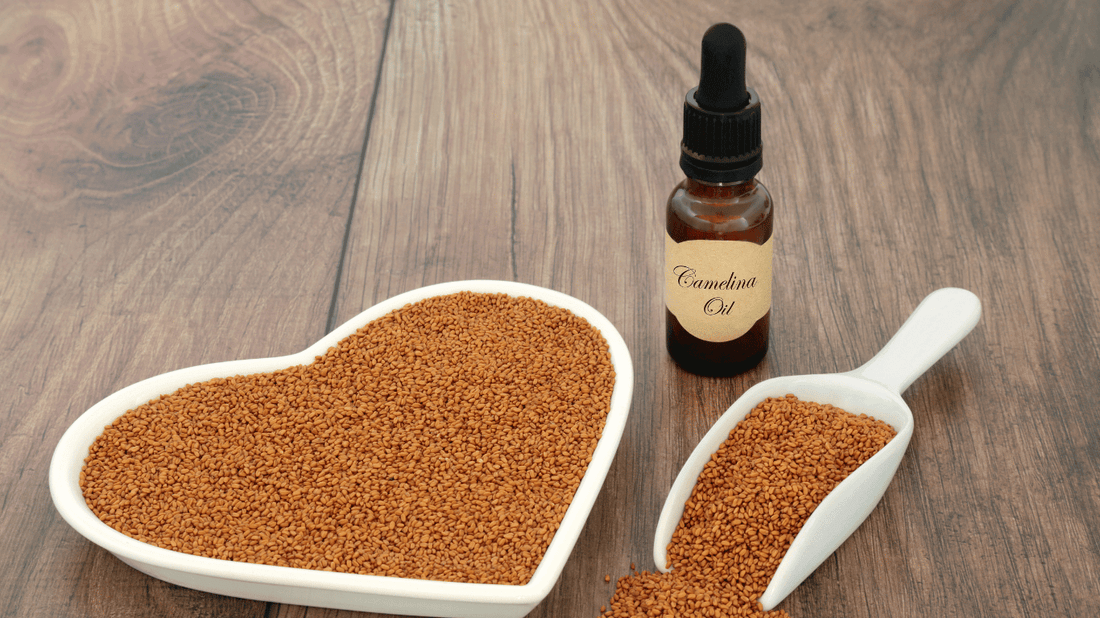Camelina Seed Oil is a remarkable natural resource derived from the seeds of the Camelina sativa plant. It is often celebrated for its resilience and nutrient-rich profile. With a history that dates back to ancient civilisations, this oil was a dietary staple in Europe long before gaining modern acclaim. In recent years, the resurgence of interest in traditional and sustainable ingredients has highlighted the benefits of Camelina Seed Oil across various industries, from culinary to cosmetics.
Nutritional and Chemical Composition of Camelina Seed Oil
The oil boasts a complex composition and is rich in unsaturated fatty acids, which makes it incredibly beneficial for heart health and skincare. Notably, Camelina Seed Oil contains up to 45% omega-3 alpha-linolenic acid (ALA) alongside omega-6 acids, tocopherols, and phytosterols. These components are crucial for maintaining skin barrier function and providing antioxidant protection.
Exploring the Multifaceted Benefits of Camelina Seed Oil

Benefits of Camelina Seed Oil for Skin
Camelina seed oil is highly regarded in skincare due to its rich content of fatty acids, particularly omega-3 and omega-6, which play a crucial role in maintaining the skin's barrier function and hydration levels. The oil helps to form a lipid barrier on the skin, locking in moisture and reducing transepidermal water loss. This can lead to improved hydration, elasticity, and a noticeable reduction in dryness and flakiness. Additionally, antioxidants like vitamin E and phytosterols in camelina oil help protect the skin from environmental stressors. It may slow the signs of ageing by preventing oxidative damage.
Supporting Cardiovascular Health
Camelina seed oil's benefits extend to cardiovascular health, primarily due to its high alpha-linolenic acid (ALA) content, a plant-based omega-3 fatty acid. ALA is known to help reduce cholesterol levels and lower blood pressure, which are critical factors in cardiovascular disease prevention. Regular consumption of camelina oil can contribute to a healthier lipid profile, reducing the risk of arteriosclerosis, heart attacks, and strokes.
Role in Reducing Inflammation
Another significant benefit of camelina seed oil is its anti-inflammatory properties. Omega-3 fatty acids are known to reduce the production of substances and markers linked to inflammation in the body. This makes camelina oil potentially beneficial for individuals suffering from inflammatory diseases such as arthritis, inflammatory bowel disease, and other conditions where chronic inflammation is a concern.

Cognitive and Neurological Benefits
Camelina oil also offers cognitive and neurological benefits, primarily through its omega-3 fatty acids. These essential fats are crucial components of cell membranes in the brain and play a role in preserving nerve cell integrity. They are associated with reduced rates of cognitive decline and may improve memory and brain function. Omega-3 fatty acids from plant sources like camelina oil are especially beneficial in building and maintaining brain health, potentially reducing the risk of Alzheimer's disease and other forms of dementia.
Eye Health Benefits
For eye health, the omega-3 fatty acids in camelina oil can be particularly beneficial. They contribute to proper retina function and may help protect against conditions like dry eye syndrome and age-related macular degeneration. The anti-inflammatory effects of omega-3s also support overall eye health by reducing inflammation around the eyes, which can lead to various chronic eye conditions.
Comparative Analysis of Camelina Seed Oil with Other Oils
Compared to flaxseed oil or olive oil, Camelina Seed Oil offers better stability and a higher content of fatty acids, which are beneficial for both heart health and skin nourishment. Its favourable omega-3 to omega-6 ratio surpasses many other oils, enhancing its nutritional profile. Camelina seed oil, flaxseed oil, and olive oil are all recognised for their health benefits, particularly in areas of cardiovascular health and skin care. However, distinct differences in their fatty acid compositions, stability, and nutritional profiles can influence their use and benefits.

Fatty Acid Composition
- Camelina Seed Oil: It is rich in polyunsaturated fatty acids, including a high percentage of alpha-linolenic acid (ALA), an omega-3 fatty acid, constituting up to 45% of its profile. It also contains significant amounts of omega-6 fatty acids but maintains a beneficial ratio of omega-3 to omega-6, crucial for reducing inflammation.
- Flaxseed Oil: This oil is one of the highest sources of ALA among vegetable oils, sometimes providing up to 55% of this fatty acid. However, it needs to have a balance in omega-6 fatty acids, which can lead to an imbalance if not supplemented with other sources.
- Olive Oil: Olive oil is primarily known for its monounsaturated fat content, particularly oleic acid. It contains less polyunsaturated fat and is relatively low in omega-3 fatty acids.
Stability and Oxidation
- Camelina Seed Oil: Offers better oxidative stability than flaxseed oil due to its vitamin E content and an ideal fatty acid composition that includes monounsaturated fats. This stability makes it suitable for cooking at higher temperatures without degrading its nutrients.
- Flaxseed Oil: Flaxseed Oil has a lower oxidative stability and is prone to rancidity if not stored correctly. Due to its low smoke point, it is not recommended for cooking.
- Olive Oil: Extra virgin olive oil is stable due to its antioxidant content, but it should be used at lower cooking temperatures to maintain its health properties. Refined olive oils can be used for higher-heat cooking.
Nutritional Profile and Health Benefits
- Camelina Seed Oil: Besides cardiovascular benefits due to its omega-3 content, camelina oil also supports skin health through its moisturizing and anti-inflammatory properties.
- Flaxseed Oil: While its high omega-3 content makes it excellent for cardiovascular health and reducing inflammation, it doesn't offer the same level of antioxidants as camelina oil.
- Olive Oil: Highly beneficial for heart health due to its oleic acid content, which can help lower harmful cholesterol levels and increase good cholesterol. It is also rich in antioxidants, which protect against oxidative stress.
Comparison Table

|
Feature |
Camelina Seed Oil |
Flaxseed Oil |
Olive Oil |
|
Main Fatty Acid |
High in Omega-3 (ALA) |
Very high in Omega-3 (ALA) |
High in Omega-9 (Oleic) |
|
Omega-3:Omega-6 Ratio |
Favorable (close to 2:1) |
High Omega-3, low Omega-6 |
Low Omega-3 |
|
Stability |
High (good for cooking) |
Low (not for cooking) |
Moderate (varies by type) |
|
Antioxidant Content |
Moderate |
Low |
High |
|
Best Uses |
Cooking, skin care |
Dietary supplements |
Cooking, dressings |
This comparison highlights how camelina seed oil can be a more versatile and stable option compared to flaxseed and olive oils, particularly when considering use for both dietary and skincare applications.
Safety and Side Effects
Camelina Seed Oil is generally recognised as safe (GRAS). However, as it is a member of the mustard family, it may cause allergic reactions in susceptible individuals. Consumers should perform a patch test before incorporating it into their skincare routine.
Environmental Impact and Sustainability of Camelina Seed Oil Production
Camelina Seed Oil cultivation is environmentally friendly, requiring less water and fertilisers than other oilseed crops. Its ability to grow in poor soils reduces the need for chemical inputs, making it a sustainable choice in agriculture.
Natural Vegan Hand Cream
At natrl skincare, we harness the natural potency of Camelina Seed Oil in our luxurious natural vegan hand cream. Designed to soothe and rejuvenate dry hands, our hand cream integrates the best of nature's offerings to ensure your hands are not just treated but transformed. Embrace the benefits of our hand cream.



 Whatsapp us!
Whatsapp us!